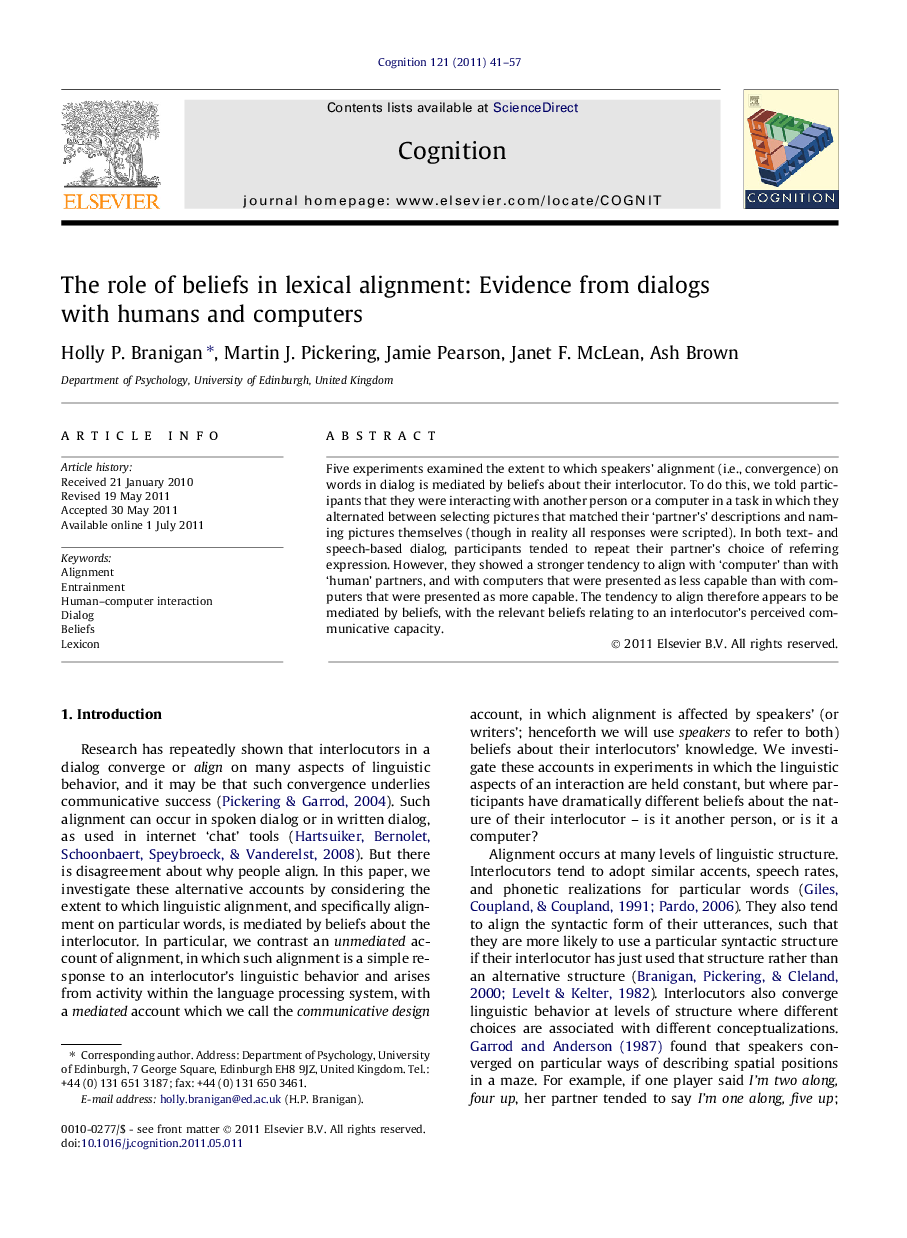| Article ID | Journal | Published Year | Pages | File Type |
|---|---|---|---|---|
| 926472 | Cognition | 2011 | 17 Pages |
Five experiments examined the extent to which speakers’ alignment (i.e., convergence) on words in dialog is mediated by beliefs about their interlocutor. To do this, we told participants that they were interacting with another person or a computer in a task in which they alternated between selecting pictures that matched their ‘partner’s’ descriptions and naming pictures themselves (though in reality all responses were scripted). In both text- and speech-based dialog, participants tended to repeat their partner’s choice of referring expression. However, they showed a stronger tendency to align with ‘computer’ than with ‘human’ partners, and with computers that were presented as less capable than with computers that were presented as more capable. The tendency to align therefore appears to be mediated by beliefs, with the relevant beliefs relating to an interlocutor’s perceived communicative capacity.
► Participants named and selected pictures with a ‘human’ or ‘computer’ partner. ► They tended to repeat, or align on, their partner’s choice of name for a picture. ► But they did this more often when they believed the partner was a computer than a person. ► They also aligned more with a computer presented as ‘basic’ than as ‘advanced’. ► Speakers’ beliefs about their interlocutors affect lexical alignment in dialog.
